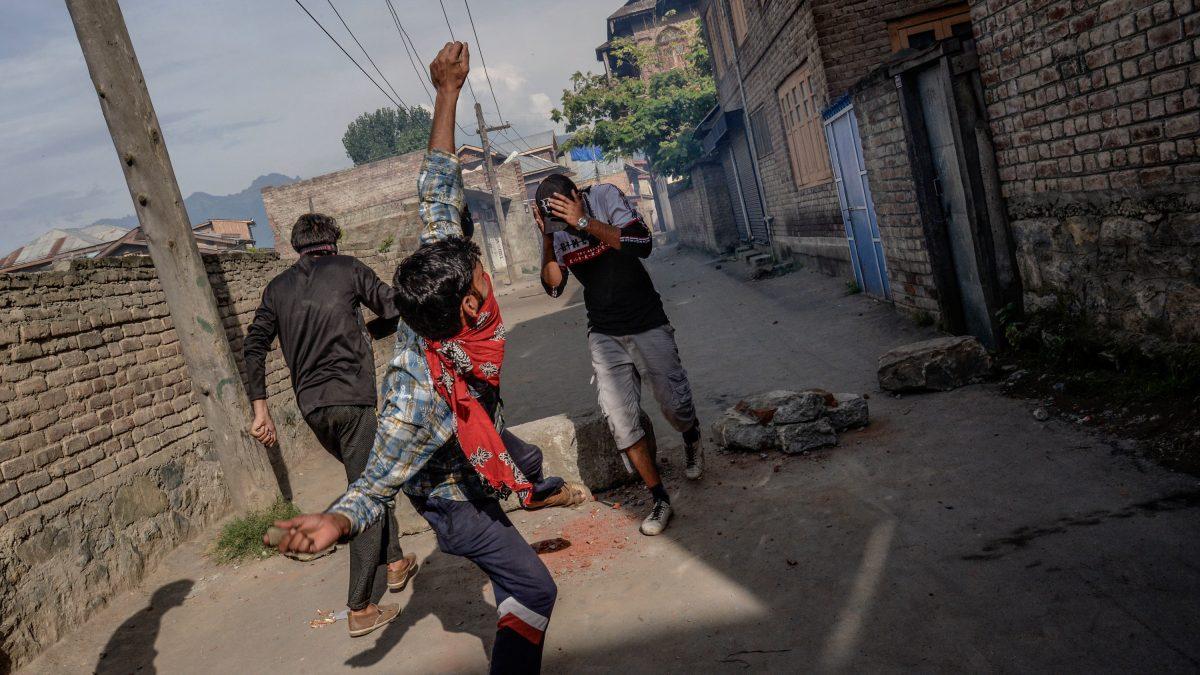On Aug. 5, 2019, the Indian government, led by Prime Minister Narendra Modi, announced that it would revoke Article 370 of the Indian Constitution, thus stripping Jammu & Kashmir of its special status and autonomy. The Kashmir territory is currently divided between Pakistan, India and China and has been the center of conflict since 1947. After the Indian government’s announcement — which shocked not only international spectators but also Indians both in and outside of Kashmir — the Indian government announced an internet shutdown, eliminating the use of cell phones and even landlines. Millions of Kashmiris are unable to get in contact with their loved ones or to even publicize the injustices they are facing at the hands of the Indian government. Indian authorities are deliberately misinforming citizens, as official records of events obscure Kashmiri protests altogether.
Considering these recent developments, India’s status as the biggest democracy in the world must be questioned. Indian authorities have spoken on national television claiming that: “life is slowly returning to normal.” However, Indian officials are reportedly assaulting the Kashmiri population. Frustrated citizens denied democracy and human rights are flooding the streets of Srinagar, the capital of Jammu & Kashmir, and protesting worldwide. If this is returning to normalcy, India should no longer be considered democratic.
Kashmiris have been stripped of their human rights and necessities for survival as the Indian state continues their crackdown. Doctors have been unable to treat their patients, many of whom are ill, because of restrictions on all avenues of communication. Furthermore, vital products like baby food and insulin are running out, as Kashmiri shopkeepers are unable to order more online. The conditions that Kashmiris have been forced into are unliveable. Yet, very little can be done by outside actors, specifically the international community, because these human rights violations are being inflicted on Indians by their very own country.
How can India be classified as a democracy when it has not only isolated and deprived its people for weeks — but also bolstered its military with the right to shoot with near impunity? Have these atrocities been committed in the name of preserving law and order? When these kinds of rights are bestowed upon military forces, war crimes can arise. Kashmiris now refer to their home as a prison due dually to this increased military presence and unfathomable number of security checkpoints throughout the state, especially in Srinagar.
It would be naive to say that the Indian government’s actions are not religiously motivated. Although the country is officially secular, as stated in the Indian Constitution, the current ruling political party maintains an entirely different agenda. The Bharatiya Janata Party (BJP), the political party of Prime Minister Modi, is a right-wing Hindu nationalist party that has been pushing its Hindu-first agenda for decades. Its most radical members are proponents of Hindutva, or India in its truest form, and advocate for a Hindu nation. Out of India’s 29 states, Jammu and Kashmir are the country’s only states with a non-Hindu majority; as non-Kashmiris begin moving into the state — which is a vital part of the BJP’s Kashmir plan — the erasure of Muslim identity is inevitable, but only because of careful political engineering by the BJP. With developmental growth, one of Modi’s promises for Kashmir, comes the wiping out of Kashmiri Mulsim spaces, bodies and iconography.
As a secular country, the Indian government cannot prioritize any one religion, but it is doing just that. Freedom of religion is a fundamental right listed in the Indian Constitution, yet the BJP-majority government has decided to violate the rights of Kashmiris, and is covering it up by claiming that these actions will improve the infrastructure and economy of Jammu and Kashmir.
Now, as India is slowly beginning to lift its restrictions, Kashmiri separatists are enforcing their own. They hope to continue fighting through, making Kashmir essentially ungovernable until the state becomes completely autonomous. To counteract the guise of normalcy that has grown as restrictions have been lifted, militant separatists are currently threatening and attacking Kashmiri civilians, in one instance murdering a five-year-old girl. With all of this, there is one common denominator: the fates of the Kashmiri people. They have been wracked with violence, religious discrimination and dangerous restrictions for weeks. Kashmir does not see any hope for its people in the near future.
When India first announced its decision to revoke Article 370, I was coincidentally in India and spoke to several family members about the news. A common sentiment that was brought up was that although they did not necessarily agree with the current government’s actions in regards to Kashmir, they still supported Modi’s government because India had not seen the type of development that Modi has facilitated in decades. However, this argument is inherently flawed. Regardless of how Modi has affected India’s economy and infrastructure, Kashmir is in crisis because of the decisions of the Indian government. Modi’s progress in other governmental departments is no excuse for complacency.
The people of India must stand up for the Kashmiri community. Once human rights violations begin to be justified, democracy becomes fractured, and that is exactly what has happened in India.




